Introduction
As electric vehicles take center stage in the global transition toward sustainable transportation, charging infrastructure has become the backbone of this transformation. According to data from Statzon, the global EV charging station market reached $25.6 billion in 2024 and is projected to surge to $215.4 billion by 2032, growing at a compound annual rate of 30.5%.
Riding this wave of electrification, a group of pioneering EV charging companies is rapidly expanding their international networks, delivering reliable, high-speed, and intelligent charging solutions across every use case — from home charging to commercial DC fast charging.
Here’s a look at the top 10 global EV charging companies in 2025, leading innovation, market coverage, and sustainable growth.
1. Tesla — The Pioneer of Global Supercharging
Tesla remains synonymous with EV charging innovation. Beyond its dominance in the EV market, Tesla has built one of the most reliable fast-charging networks worldwide.
As of 2025, the company operates over 45,000 Superchargers across North America, Europe, and Asia Pacific.
Since 2023, Tesla began opening its Supercharger network to non-Tesla vehicles, signaling a strategic shift from a closed ecosystem to a public charging service provider.
Its V4 Superchargers deliver up to 250kW, integrating solar canopies and battery storage to achieve a full renewable energy cycle — a benchmark for sustainable EV infrastructure.
2. ChargePoint — The World’s Largest Independent EV Charging Network
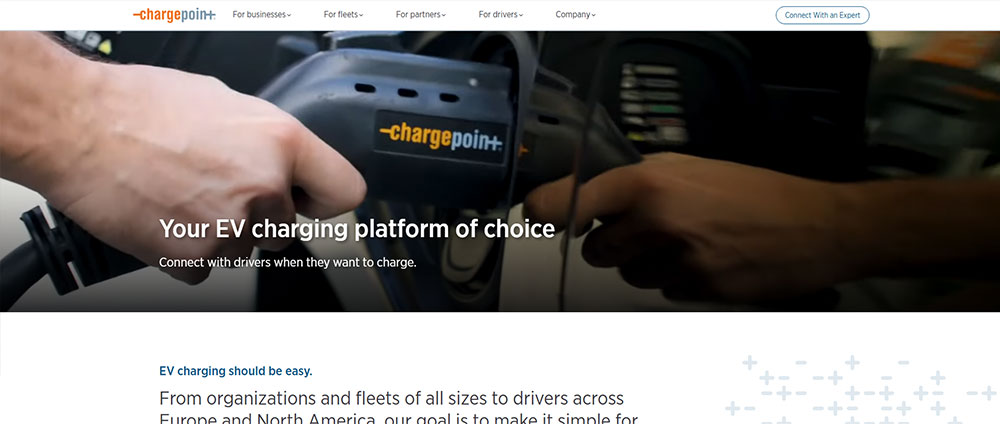
Founded in California in 2007, ChargePoint is the world’s largest independent EV charging network. By early 2023, it had deployed 225,000+ charging points across 14 countries, enabling more than 12.9 billion electric miles globally.
ChargePoint offers comprehensive charging solutions for residential, commercial, fleet, and public applications. Its cloud-based platform and mobile app provide real-time monitoring, dynamic pricing, and seamless payments.
Recognized by EV Magazine as one of the “Most Preferred Charging Networks,” ChargePoint continues to rank among the top global EV infrastructure companies.
3. Shell Recharge — A Legacy Energy Giant Embracing Electrification

Shell Recharge is redefining Shell’s role in the energy transition. As of 2025, it has connected over 700,000 public charging points across 33 European countries, making it one of the largest EV charging networks worldwide.
Shell focuses on destination and home charging, targeting everyday convenience for EV users. In the UK alone, it plans to operate over 500,000 charging points by 2025.
With ultra-fast 350kW chargers, real-time availability tracking, and transparent pricing via its user-friendly app, Shell Recharge delivers a premium and seamless charging experience.
4. Electrify America — The Largest Open DC Fast-Charging Network in the U.S.
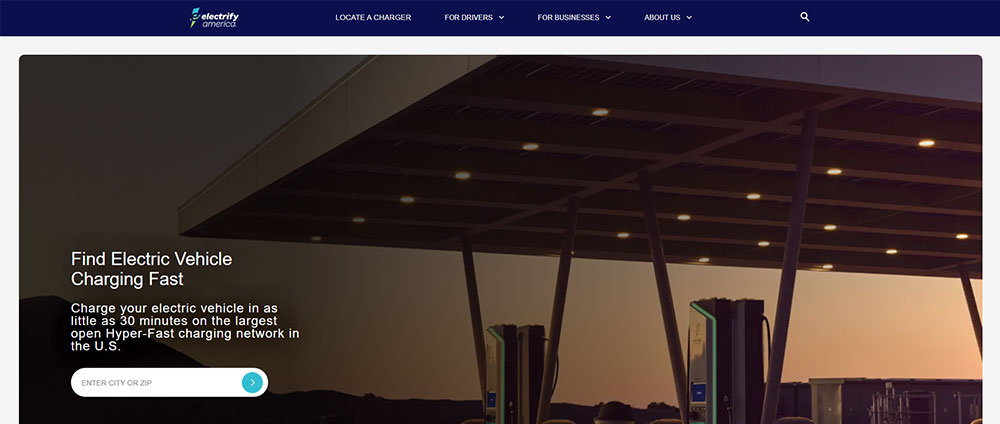
Owned by Volkswagen Group of America, with Siemens as a technology partner, Electrify America operates the largest open DC fast charging network in the U.S. The company has committed $2 billion to build zero-emission infrastructure nationwide.
Its stations span 46 states and Washington, D.C., offering up to 350kW charging speeds, enough to add roughly 20 miles of range per minute.
Every station is powered by 100% renewable energy and features liquid-cooled cables and Plug & Charge technology, ensuring a smooth and efficient experience.
5. EVgo — A Leader in Public DC Fast Charging
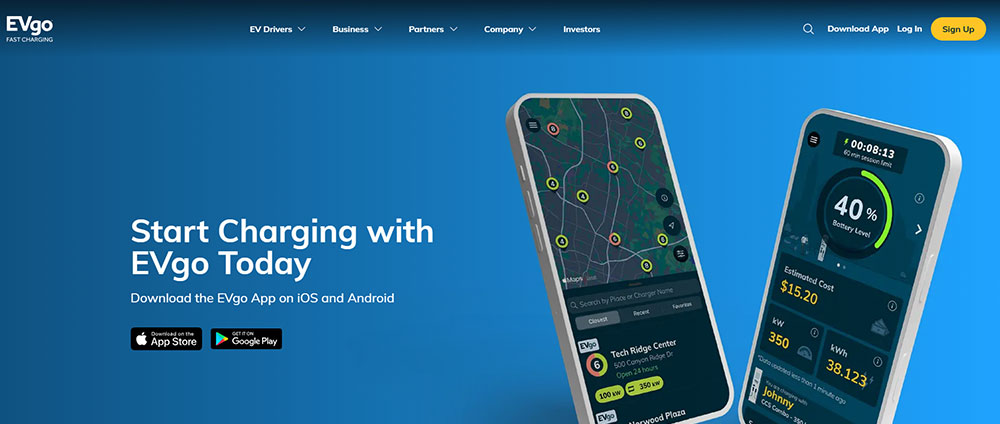
EVgo stands out as a leading public DC fast-charging provider in the U.S., with more than 1,000 stations operating across 40 states, serving over 145 million people.
Partnering with General Motors, EVgo plans to deploy 3,250 additional 350kW chargers by 2025, strategically located in city centers and major transport hubs.
Its prefabricated modular station design dramatically reduces installation time and cost — a smart move toward scalable infrastructure expansion.
6. ABB — Industrial Powerhouse Driving Reliable EV Charging Solutions
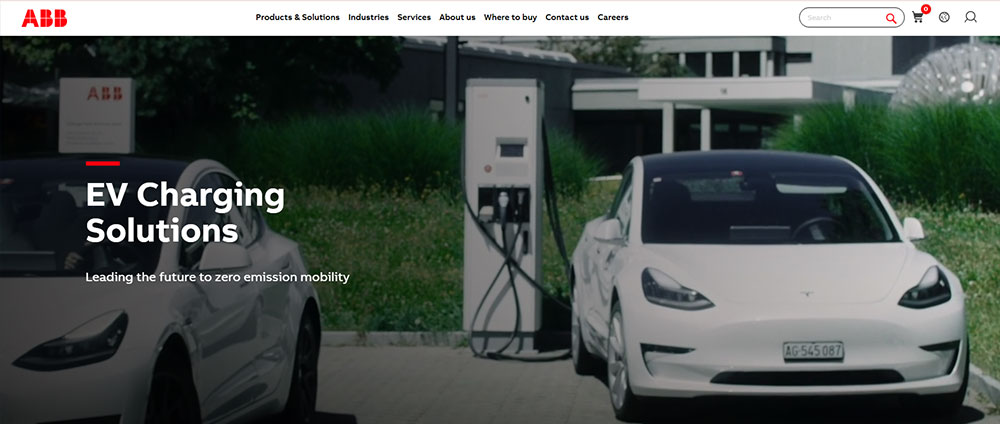
Swiss technology leader ABB leverages decades of expertise in power and automation to deliver world-class EV charging systems.
Its Terra 360 DC fast charger supports up to 360kW output, capable of adding hundreds of miles of range in just 15 minutes.
ABB provides compact, high-reliability chargers for operators, fleets, and city projects, offering OEM and system integration support. The company remains a top choice for large-scale infrastructure projects across Europe and beyond.
7. Blink Charging — Global Expansion and Smart Charging Platform
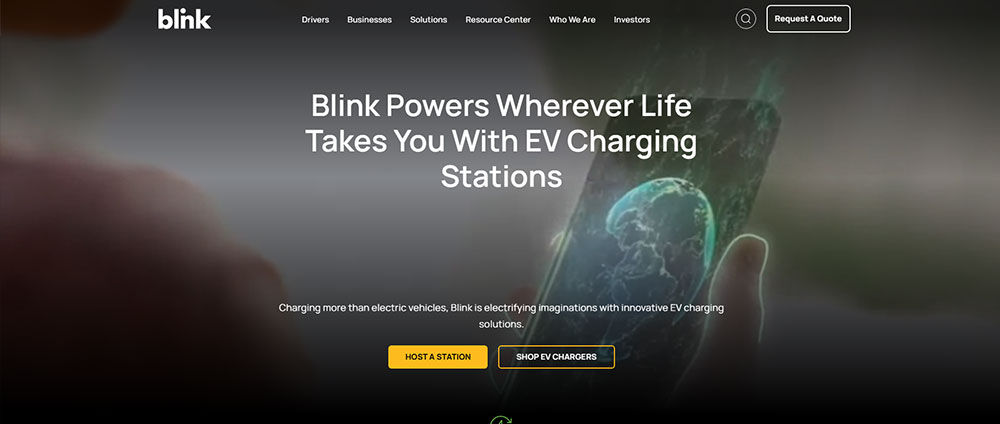
Operating in 25 countries, Blink Charging has deployed more than 90,000 charging ports and 78,000 chargers globally, covering markets across the Americas, Europe, and the Middle East.
Blink offers both Level 2 AC and DC fast chargers, all connected to its intelligent cloud platform that enables remote management, dynamic billing, and predictive maintenance.
With partnerships across 4,000+ dealerships, Blink is building an integrated “buy and charge” ecosystem for EV customers worldwide.
8. BP Pulse — Accelerating the UK’s Electrification Transition
BP Pulse is one of the UK and Germany’s largest EV fast-charging networks.
In 2023, the company doubled its number of ultra-fast chargers and announced plans to deploy over 100,000 chargers globally by 2030.
BP Pulse has committed £1 billion (around $1.3 billion) to build premium EV hubs across strategic highways and transport zones, enhancing accessibility for commercial fleets and the public.
All chargers support remote management and are compatible with all major EV brands.
9. Siemens — Building the Backbone of Industrial EV Infrastructure
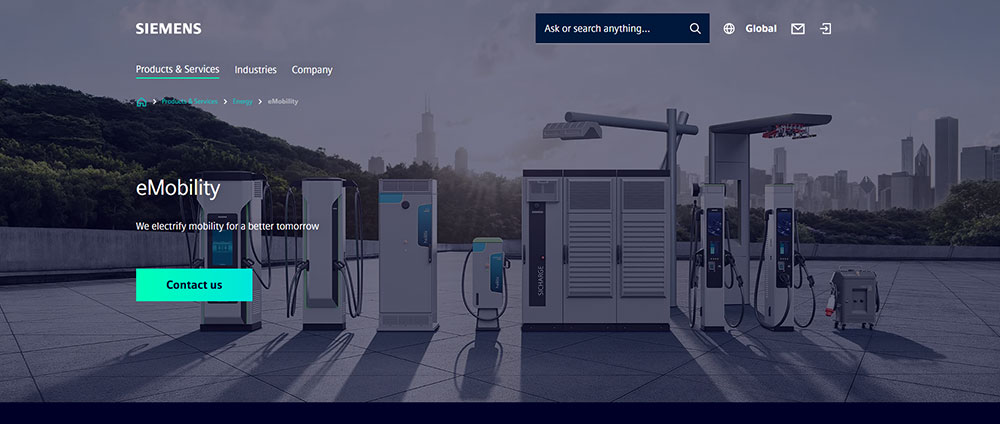
German engineering leader Siemens provides system integration, OEM manufacturing, and energy management for large-scale EV infrastructure projects.
Its charging systems, known for exceptional safety and stability, are widely used for public transit, logistics fleets, and industrial operations.
Through its “Siemens eMobility” division, the company aims to create a seamless, end-to-end ecosystem connecting the grid, chargers, and vehicles.
Future plans include expanding global production and introducing next-generation high-performance chargers.
10. AnengJi Charging — China’s Rising Force in Global EV Charging Manufacturing
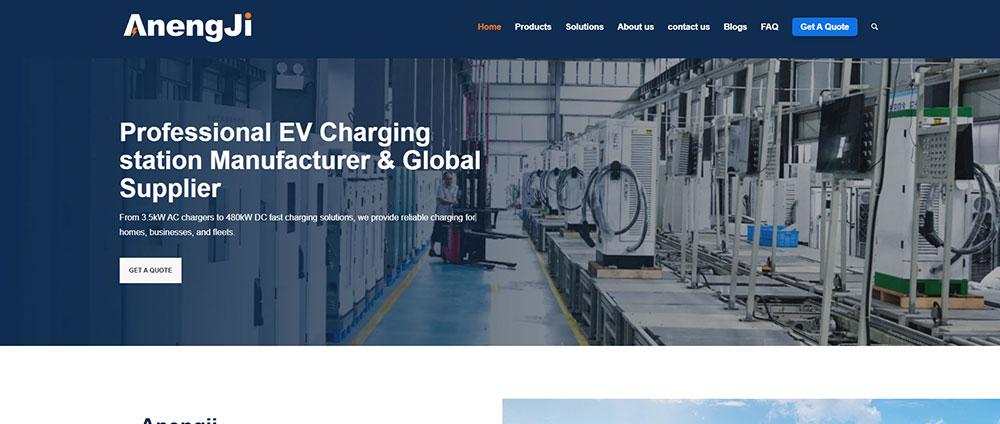
AnengJi Charging, a leading EV charger manufacturer from China, has become a major exporter to Europe, Southeast Asia, and the Middle East.
With a 40,000 m² manufacturing base, AnengJi offers a full lineup — 7kW / 14kW / 22kW AC chargers, 120kW / 180kW / 360kW / 480kW DC fast chargers, and liquid-cooled ultra-fast systems, all supporting CCS, CHAdeMO, and GB/T standards.
Its smart cloud platform enables real-time monitoring, load management, and energy optimization, helping operators reduce costs and improve uptime.
AnengJi’s mobile app provides scan-to-charge, status tracking, and online payment, delivering a smooth user experience.
With active collaborations with real estate developers, utilities, and EV brands, AnengJi is driving China’s high-quality manufacturing onto the global stage.
How to Choose the Right EV Charging Partner
In a fast-moving market, choosing the right EV charging company can determine your project’s long-term success.
Here are four key factors to consider:
- Network Coverage & Reliability
- Technical Advancement (Power, Intelligence, Compatibility)
- Business Model & ROI Cycle
- Government Incentives & Partnerships
For commercial property owners, fleet operators, and energy investors, partnering with companies like AnengJi Charging — with strong R&D, global service capability, and end-to-end customization — ensures efficient deployment and sustainable growth.
Who Will Shape the Future of EV Charging?
While automakers like Tesla, Mercedes-Benz, and Hyundai focus on brand-specific networks, independent operators such as ChargePoint, Shell, EVgo, and AnengJi are emerging as global ecosystem builders.
Their open networks, advanced technologies, and cross-border expansion are defining the next decade of EV charging infrastructure.
For investors and business owners, now is the time to engage — whether deploying public chargers, investing in smart energy infrastructure, or building your brand’s own charging network.
As the world accelerates toward zero emissions, those who act early will lead the new era of electric mobility.
Contact us
Ready to build your EV charging project?
Contact us today for a free consultation and tailored smart charging system designed for global compatibility, efficient deployment, and long-term profitability.
FAQ Section
Q1: Who are the top EV charging companies in 2025?
A1: Tesla, ChargePoint, Shell Recharge, ABB, EVgo, BP Pulse, Blink Charging, Siemens, Electrify America, and AnengJi Charging lead the global EV charging market in 2025.
Q2: Which company has the largest EV charging network?
A2: ChargePoint operates the largest independent network globally, while Shell Recharge and Tesla dominate in Europe and North America, respectively.
Q3: What’s the difference between Level 2 and DC fast charging?
A3: Level 2 chargers deliver up to 22kW for home or workplace use, while DC fast chargers can reach 350kW, ideal for highway or fleet operations.
Q4: How much does it cost to install a commercial EV charging station?
A4: Costs vary by power level and site type. Level 2 installations typically range from $2,000–$7,000 per unit, while DC fast chargers can exceed $40,000.
Q5: How do I choose the right EV charger manufacturer?
A5: Look for certifications (CE, UL, TUV), OCPP protocol compatibility, and proven reliability. Brands like AnengJi offer flexible, high-quality OEM solutions for global markets.
References
[1] The global electric vehicle charging station market size is projected to reach $215 billion by 2032, with a compound annual growth rate of 30.5%. Source: https://statzon.com/insights/global-electric-vehicle-charging-stations-market (Accessed: October 29, 2025)

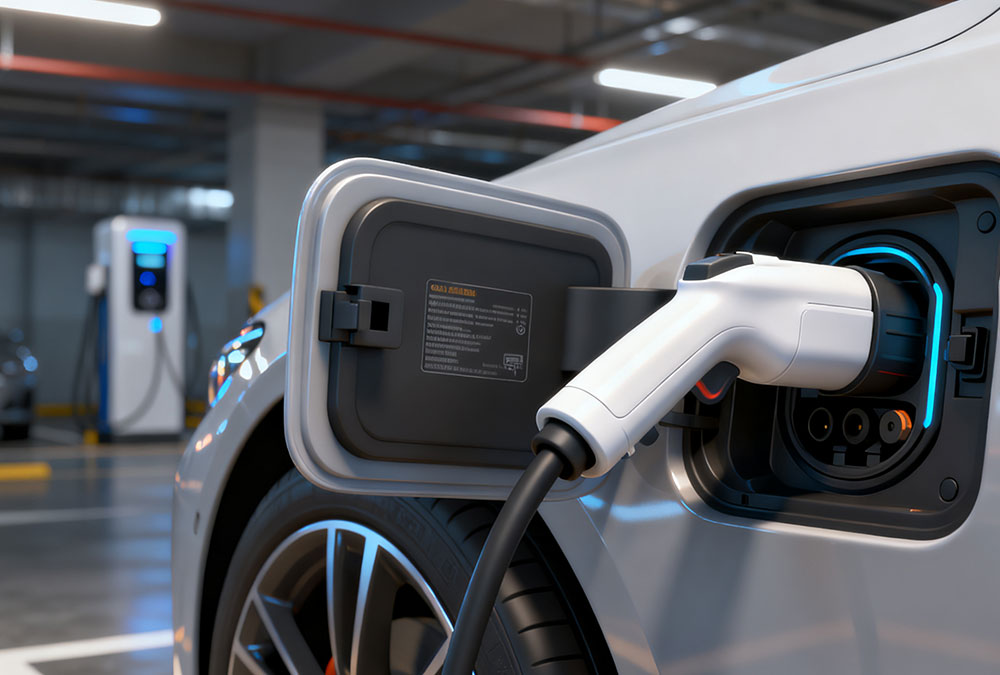
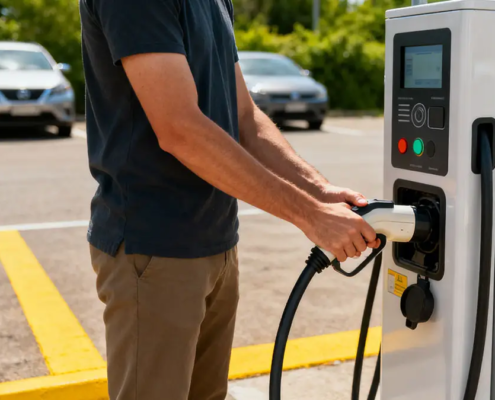
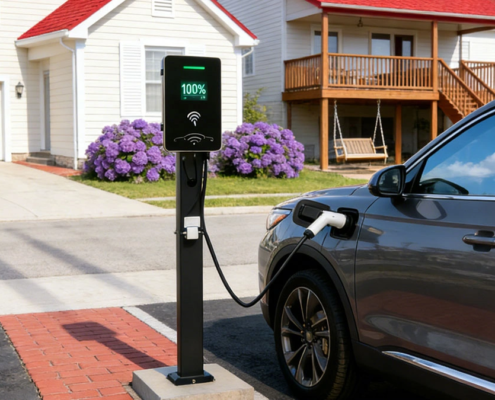
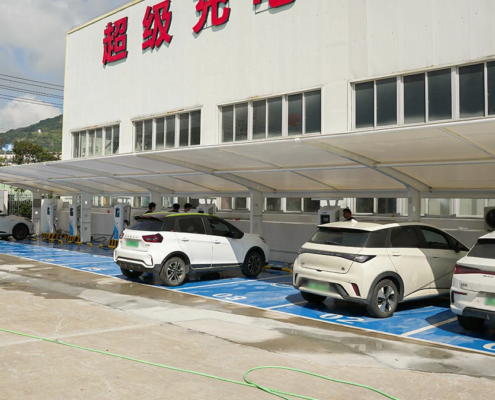



Leave a Reply
Want to join the discussion?Feel free to contribute!